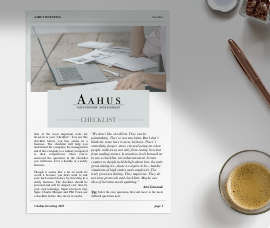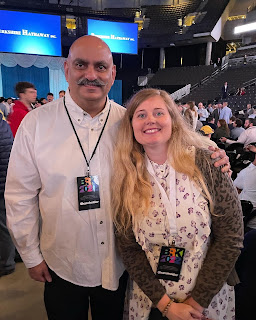How to Get Out of Debt
The interest rates are increasing and with that so is the interest rate on your debt. Whether it’s mortgage, credit card, car or other types of debt, we could potentially see further increases in the years to come. This means that you want to decide how to pay off your debt as soon as possible so your debt wont snowball. Read this article if you’re trying to save money because the principles will be the same.
This is my method and I’ve tested it on myself, and it works!
If you’ve been following me for a while, you know that I had a lot of debt when I was in my 20’s. I can’t say I spent the money on something valuable. It was on takeout food and café latte’s, new outfits, handbags and shoes – plus a student loan. At the end of the month, I would have sleepless nights because the credit card bill was due. The new month would start in minus, and I would never plan ahead, so having to buy Christmas presents came at a surprise every year. Haha. Whether or not your debt comes from mindless spending or from actual value adding things, you’ll want to pay down on that debt as soon as possible.
For me the big moment of change came one of those sleepless nights at the end of the month. I had enough and it was time to change. I wanted to sleep all night and not have money worries.
 |
| This post is dedicated to two beautiful souls I met this weekend at Tony Robbins’ Unleash the Power Within event in West Palm Beach, USA who had debt and they inspired me to share what I did. |
Cut the cr*p
Sometimes it helps using a taboo word to wake us up and for me it helped to create a plan to cut off unnecessary purchases. I got the idea of “cutting the cr*p” from Mette-Marie Davidsen, a Danish author, who went through this herself and eventually gained financial freedom. I simply created a plan Ctc and it was a plan of:
- cutting down unnecessary purchases,
- setting an ambitious number that I wanted to pay into debt per month
- and increasing the control on the money I spent every month.
That night I cut my credit cards in half and dumped them in the trash.
For the next months, I would go to the bank and withdraw cash (read that again!). I put all the cash in an envelope and that’s all the money I could spend that month. I divided the money into weekly allotments and if I spent less, the money would carry over to next week and potentially I would have extra cash for paying off debt. I also started planning for friends’ birthdays, Christmas and the like. I would simply look three months ahead every month to ensure that I had money in my envelope for upcoming events.
Automation of outflow
I created an additional bank account for necessary and fixed cost expenses (rent, utilities) plus the monthly payment on my debt.
I calculated how much money I spent per year on fundamental things and debt payments, and then calculated how much money I had to transfer to the account every month to make the average. Let’s say my annual expenses were $12000, that meant that I would transfer $1000 into that account every month (12000 divided by 12 months). From that account my bills were paid automatically.
Some months there would be a surplus of cash in this account, but the next month they would be used to pay the bi-monthly electricity bill. I simply automated this process, and I didn’t look at my account because the idea was that everything would be automated so I didn’t have to think about it. That way I also knew exactly how much money I could withdraw – it was my income minus the $1000 of fixed expenses. Ex. $1500 of income and $1000 expenses (incl. debt payment) would leave me $500 for food and fun. And I had to make do with my envelope of cash. It was difficult at first, but it worked incredibly well for me.
You can do the same. Though you might not want to go to the extreme like me and keep cash in an envelope, but you can either create additional accounts to control your money outflow, swap your credit card with a debit card to limit yourself to not overspend, set a goal of how much a month you're paying off on debt and automate it, or plan ahead by knowing your annual expenses and debt payment and allocate that money, so ever month you know the exact number you have for food and fun.
Later I will describe how this method works for “paying yourself first” a concept where you pay yourself before any expenses. That’s how I live today (something I didn't think was possible).





Comments
Post a Comment